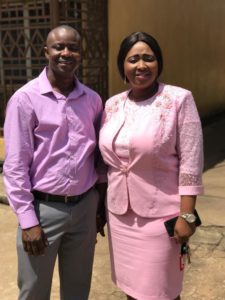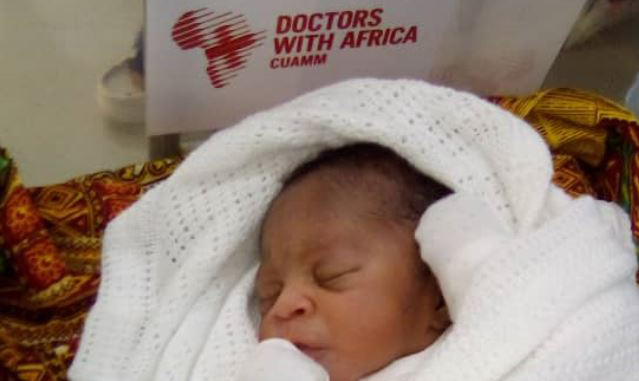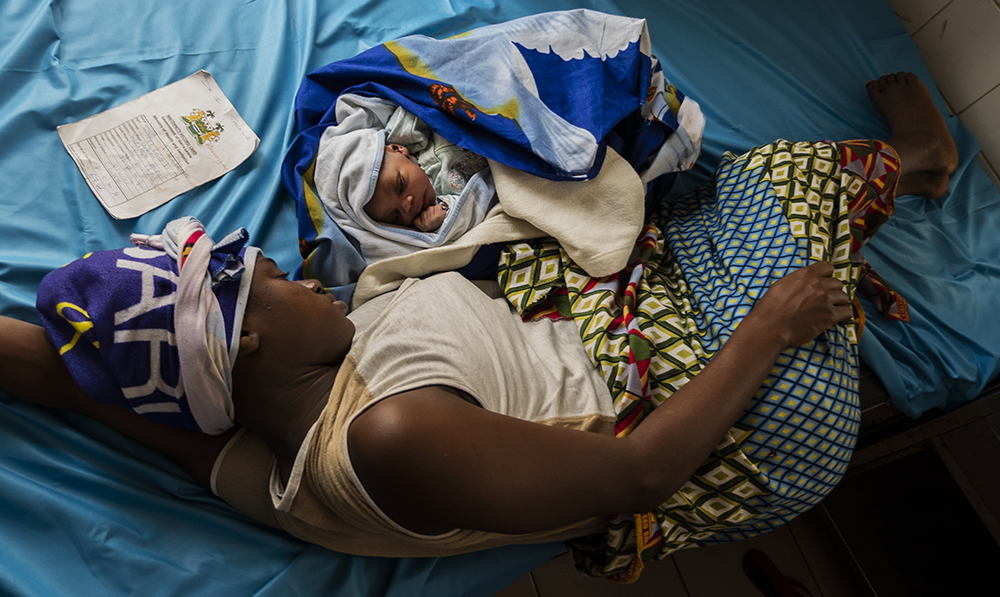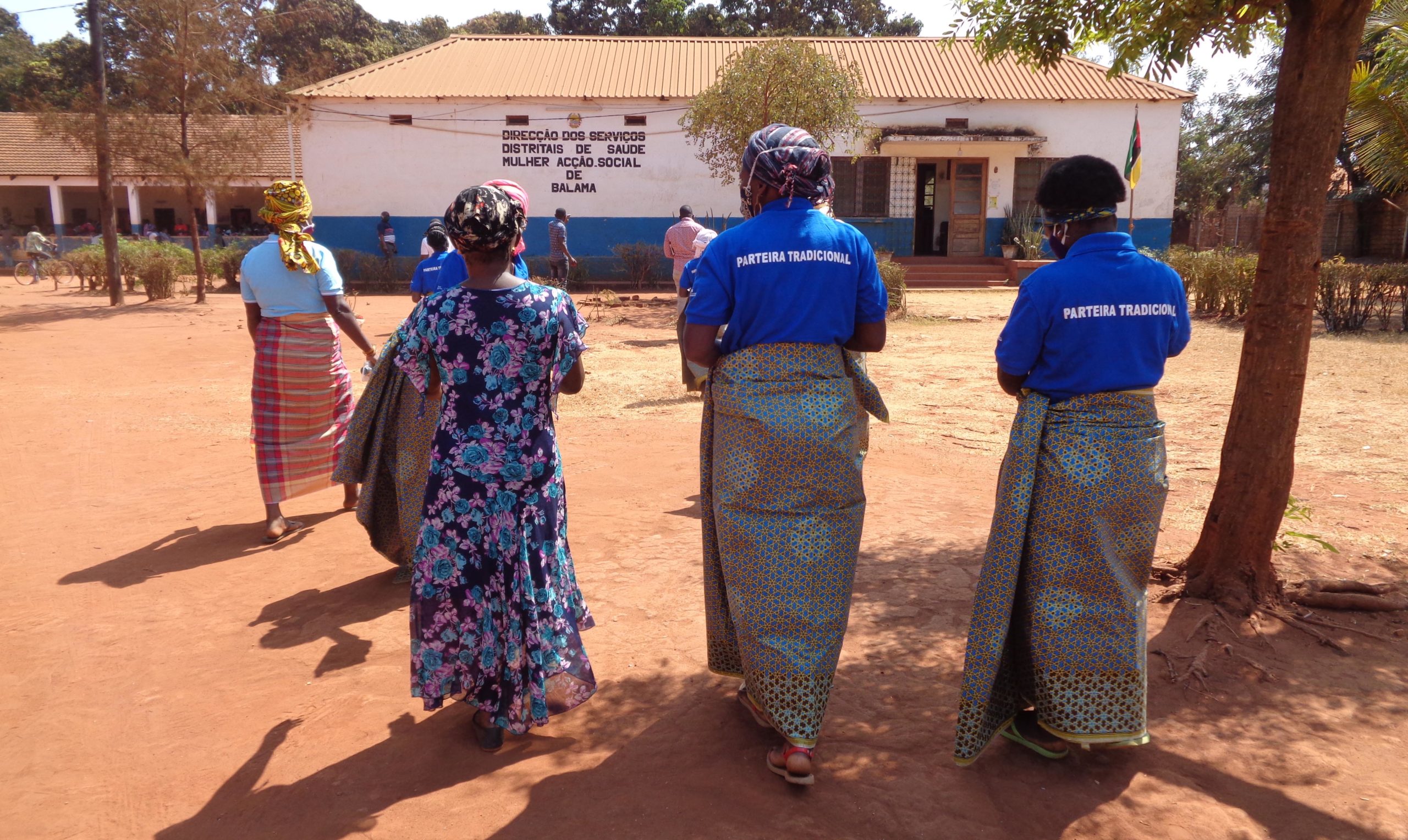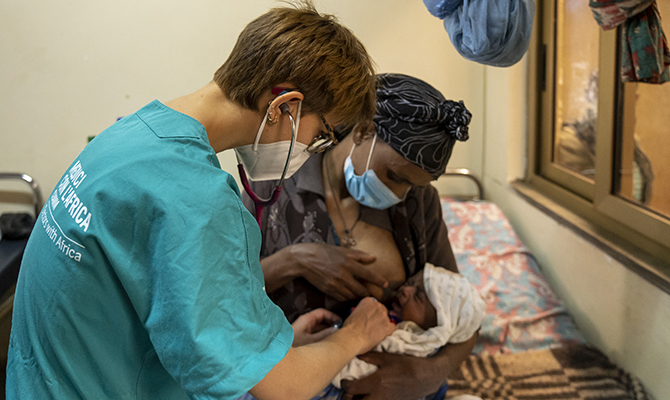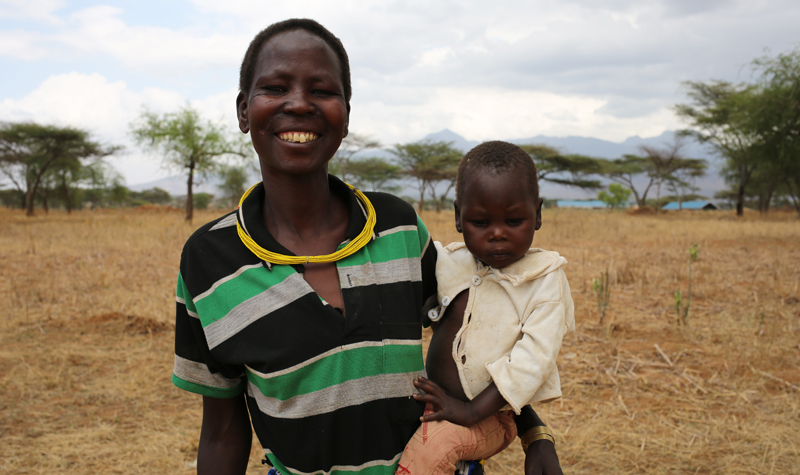Sierra Leone is one of the countries with the highest maternal mortality rate in the world, 1,120 maternal deaths per 100,000 live births, along with infant mortality rate, 78.5 deaths per 1,000 live births (UNDP, 2019). Behind these staggering figures are people, stories of women and children who face daily challenges and still too often lose their lives due to poor health practices, inadequate and ill-equipped health facilities.
Agnes and Patrick live in Bo, Sierra Leone, and their story fortunately had a different ending. They got married in 2013 and their greatest wish was to have a baby. Shortly after the wedding Agnes became pregnant but lost the baby during the first months of pregnancy. After several attempts, Agnes became pregnant again and together with Patrick decided to travel to Freetown in the hope of finding better health services for mothers and children. Despite their efforts to seek better care, a complication arose in the seventh month of pregnancy due to inadequate antenatal care visits, forcing her to undergo an emergency surgery which the baby did not survive.
“It was really hard for us” says Patrick. “After some time, Agnes became pregnant again and we undertook a new arduous journey looking for better assistance than that we had received in Sierra Leone”. The first stop was Ghana, with the hope of obtaining a visa to go to Canada, where Patrick’s brother Mustapha lived. Then Nigeria, where the pregnancy was interrupted again in the third month. Finally, they returned to Sierra Leone where Agnes and Patrick finally started a new chapter thanks to their meeting with Dr. Tiru Nitsuh Addis, an Ethiopian gynaecologist working in Bo with Doctors with Africa CUAMM.
“Dr Tiru’s approach was completely different from all the experiences we had had with other doctors. He asked us to tell him our story, our medical background, he listened carefully to my wife, her fears and our concerns about this new pregnancy after so many difficulties and losses we had experienced”, says Patrick. “He did a procedure called “cerclage” at 16 weeks of pregnancy, he supported us and followed us step by step throughout the months of pregnancy”.
And so, on 7 May, Divine was born. “I am so overjoyed that I can’t even eat. We are so happy and grateful to the Lord, to Dr. Tiru and to the hospital’s maternity team for everything he has done for us”, Patrick adds. “Now, after 12 years of uninterrupted work, I can stop for a while to take care of my wife and my little girl. Over the years, Agnes and I have experienced first-hand what poor and inadequate health care” continues Patrick. “I have witnessed how women suffer, I have seen how this country is losing women and children”.
What Patrick and Agnes have experienced is not a unique or an exceptional case, but the story of many couples, many women forced to deal with a health system that is still too fragile, where there is a shortage of medical equipment, drugs and above all of qualified and motivated health personnel. “We absolutely must invest in education and training, not only here in Bo but throughout the whole country”.
